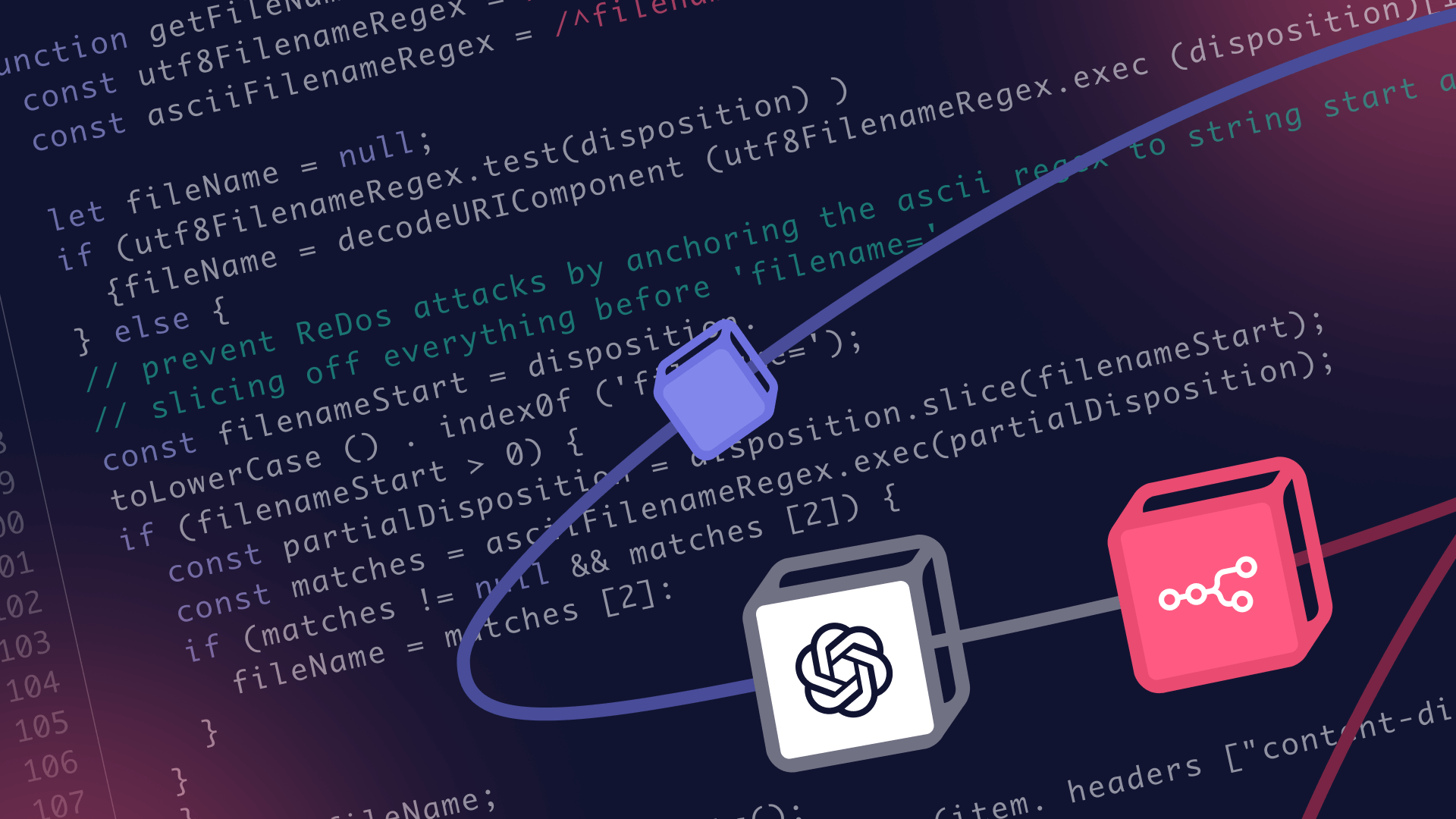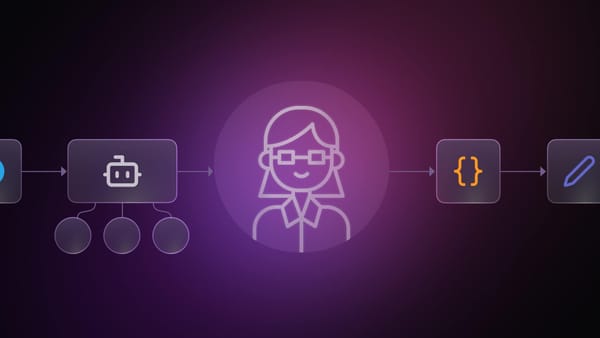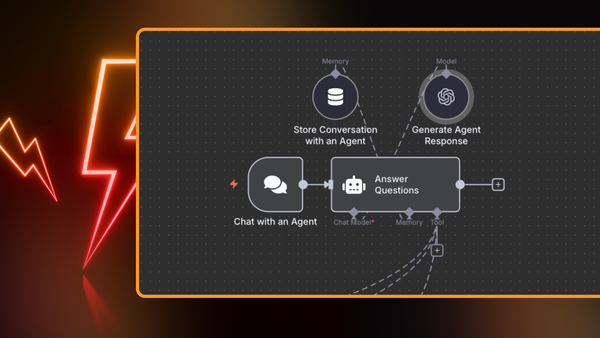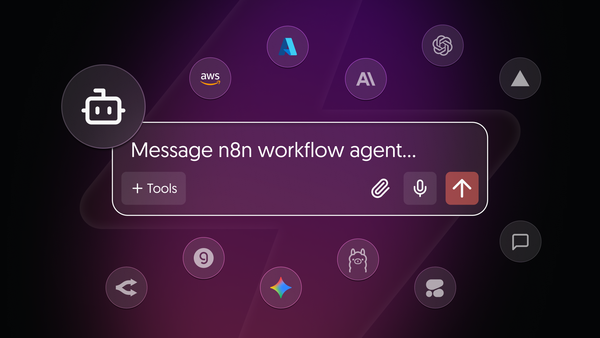Recently, we explored the top LLMs used in modern coding tools. While these models form the foundation of AI-powered development, you might need more than just raw LLM capabilities. Ideally, a complete, production-ready AI tool that integrates into the development workflow.
We’ve tested and reviewed 8 leading AI coding platforms, focusing on real-world development scenarios. Our evaluation examined how these AI tools for coding can increase productivity and integrate into existing development processes.
In this article, you’ll learn:
- Which AI coding tools offer the best developer experience
- How these platforms handle various programming tasks
- Real performance insights from our hands-on testing, product reviews and user feedback
- Why low-code platforms like n8n are often a more reliable alternative to AI-generated code.
Table of contents
- How did we select the best AI coding tools in this list?
- What is the best AI for coding?
- Key takeaways from our AI coding software testing
- Why low-code platforms often beat AI-generated code
- Wrap up
- What’s next?
How did we select the best AI coding tools in this list?
This is how we tested these 8 best AI tools for programming:
- Installed every tool (except Xcode16 as it requires a suitable Apple device);
- Used all of them in a trial mode / free tier or with an Anthropic API key – BYOK (Bring Your Own Code);
- Tested on a sample project with approximately 30 project files in a Git repository: a Jekyll website with customized template, several external JS libraries and client-side JS scripts;
- Reviewed the documentation for each tool. For Xcode AI Assistant, we additionally checked the release presentation and several external in-depth reviews.
This is a summary of the best AI tools to use for coding we’ve got:
| Tool | Best for | Type | Supported LLMs | Core Features | Pricing | Unique Aspects |
|---|---|---|---|---|---|---|
| Cursor | Advanced AI coding | VS Code fork | Newest Claude 3.7 GPT-4 Custom API keys |
Code completion Chat interface Multi-file context Terminal Image support |
Free tier: 2K completions Paid tiers from $20/mo with unlimited completions |
Composer Workspace Agent mode |
| GitHub Copilot |
GitHub-integrated development |
Native in VS Code Extensions for JetBrains, Neovim, etc. Web-Based UI |
GPT-4o Claude 3.5 / 3.7 Gemini 2.0 Model switching |
Code completion Chat interface Multi-file context Terminal PR summaries Web search Image support |
Free tier: 2K completions $10/mo: unlimited |
GitHub integration Mobile support 14 core languages |
| Bolt.new | Web app prototyping | Web-based | Claude 3.7 | Code completion Chat interface Multi-file context Terminal Live preview npm integration |
Free: 150K daily tokens $20/mo: higher limits |
WebContainer tech One-click deploy Live app inspector Native android apps |
| JetBrains AI Assistant |
JetBrains IDE-based projects and Kotlin programming |
Native integration with JetBrains IDEs |
OpenAI Anthropic JetBrains Mellum Local via Ollama |
Code completion Chat interface Multi-file context Documentation gen Commit messages Test generation |
7-day trial Paid tier from 10$/month Requires IDE subscription |
Cross-language conversion Custom Mellum LLM Focus on data privacy |
| Windsurf | Research-driven development |
Standalone IDE | GPT-4o Claude 3.5 / 3.7 DeepSeek-V3 |
Code completion Chat interface Multi-file context Terminal Web search Image support |
Free: Base model $15/mo: credit-based |
Advanced web search Super Complete Custom rules |
| Xcode AI | Apple ecosystem development |
Native integration with xcode 16 |
Local Apple model |
Code completion Basic refactoring SwiftUI suggestions |
Free with Xcode 16+ Requires Apple Silicon |
Offline operation Privacy-focused Swift/SwiftUI only |
| Cline | Custom model integration |
VS Code extension | OpenRouter API AWS Bedrock GCP Vertex Local models |
Code completion Chat interface Multi-file context Terminal MCP server support Screenshot analysis |
Free extension Pay for API usage |
Memory Bank system MCP integration |
| aider | Git-centric CLI development |
Command Line tool Browser UI (beta) |
OpenAI Anthropic DeepSeek Local via Ollama |
Git operations Multi-file edits Terminal Voice input Image support (local files only) Web search |
Free tool Pay for API usage |
Git-native workflow Voice commands Multiple edit modes |
The prices for the individual tools are very different and each has its own strengths and pitfalls:
- Flat-rate is probably the cheapest option, but raises questions about sustainability in the long run.
- Credit-based pricing offers optimal cost-per-token ratio, however, it may be less transparent.
- Bring-your-own-API-key pricing can drive up costs very quickly, especially when working in a team.
- Local LLM support looks compelling but requires deployment skills for comfortable teamwork.
What is the best AI for coding?
Modern AI coding platforms combine three essential components:
- Professional IDE capabilities: A full-featured development environment with debugging, version control, and standard coding tools.
- AI interaction interface: Contextual AI assistance via chat, commands, or intelligent agents.
- Advanced LLM integration: Powerful language models that understand both code and natural language.
Many tools claim to revolutionize coding with AI, but few successfully deliver a complete package that empowers rather than disrupts established development practices.
Let’s dive into our findings!
Cursor
Use cases: Code development, refactoring, debugging and documentation in a VS Code-like environment with advanced AI capabilities
Overview: Cursor is an AI-first code editor built on VS Code that tightly integrates with LLMs.
While feature-rich tools like Windsurf offer similar functionality with a smoother onboarding experience, Cursor takes a more technical approach that might require some initial time to master its various modes and features.
Key features:
- Intelligent code assistance:
- AI-powered code completion with context awareness
- Natural language chat for code explanations and debugging
- Inline code edits using natural language prompts
- Intelligent codebase indexing for better suggestions
- Support for images and screenshots
- Multiple AI interaction modes:
- Standard editor with AI tab commands
- Interactive chat interface
- Composer workspace for complex code generation
- Agent mode for automated problem-solving
- Advanced development tools:
- Terminal commands generation
- Automated test generation
- Documentation writing
- Multi-file refactoring
- Custom rules for AI behavior
- Model flexibility:
- Built-in support for Claude 3.5 Sonnet and GPT-4
- Option to add custom API keys
- Privacy mode for sensitive code in the Business plan
Pricing:
- Free tier: 2,000 completions, 50 premium requests
- Paid tiers from $20/month: Unlimited completions, 500 quick premium requests
GitHub Copilot
Use cases: Real-time code support, pair programming, code review, documentation generation and debugging across multiple development environments
Overview: GitHub Copilot is an AI pair programmer tool developed by GitHub and OpenAI. It combines real-time code suggestions with interactive chat capabilities, including web search support, image upload, voice entry and others.
Unlike other AI coding assistants, Copilot is deeply integrated with the GitHub ecosystem and supports multiple development environments.
GitHub Copilot interface demonstrating code suggestions and chat panel
Key features:
- Intelligent code generation:
- Context-aware code completion
- Multiple suggestion alternatives
- Next edit prediction
- Support for 14 programming languages
- Automated test generation
- Documentation writing assistance
- Interactive development support:
- Copilot Chat for code explanations
- Debugging assistance
- Security remediation suggestions
- Command generation for CLI
- Pull request summaries
- Code review assistance
- Multi-environment integration:
- Natively supported in VS Code
- JetBrains IDEs
- Neovim, Xcode
- Azure Data Studio, Visual Studio
- GitHub.com Web and GitHub Mobile
- Windows Terminal & Github CLI
- Enterprise features:
- Knowledge base integration
- Custom model fine-tuning
- Policy management & security features
- Content exclusion controls
- AI model flexibility:
- GPT-4o (default)
- Claude 3.5 Sonnet
- Gemini 2.0 Flash
- OpenAI o1 and o3-mini
- Model switching in chat interface
Pricing:
- Free: 2,000 completions, 50 chat messages per month
- Special free versions for verified students, teachers and maintainers of popular open-source projects
- Paid tiers start at $10/month: Unlimited usage, all models
Bolt.new
Use cases: Full-stack web application development, rapid prototyping and AI-powered coding in a browser-based environment
Overview: Bolt.new is a browser-based AI development environment powered by WebContainers technology. It combines the convenience of cloud IDEs with powerful AI support to help developers build and deploy web applications through natural language interaction.
While most other AIs for Coding offer more customization options, Bolt.new provides a straightforward, zero-setup experience that’s particularly effective for web development projects. The platform supports popular JavaScript frameworks such as React, Vue, Angular, Svelte and others. With the recent support of Expo framework, Bolt.new users can also create native Android apps too.
Key features:
- AI development environment:
- Natural language code generation and editing
- Npm packages installation right in the browser
- Real-time preview with hot reload
- Built-in file system management
- Multi-file context understanding
- Integrated terminal
- Project management:
- One-click Netlify deployment
- Project versioning and rollbacks
- File locking and targeting
- Customizable project templates
- GitHub repository import
- Collaboration tools:
- Shareable project links
- Team workspaces
- Project history tracking
- Chat history preservation
- Export to StackBlitz
- AI integration:
- Powered by Claude 3.5 Sonnet
- Context-aware code suggestions
- Error detection and fixing
- Custom system prompts
- Token usage optimization
Pricing:
- Free tier: 150K daily tokens, 1M monthly tokens
- Paid tiers start from $20/month
- Enterprise plans available
JetBrains AI Assistant
Use cases: AI-powered development in JetBrains IDEs, code generation and refactoring, documentation writing and intelligent code completion
Overview: JetBrains AI Assistant integrates AI capabilities directly into multiple JetBrains professional IDEs, including IntelliJ IDEA and PyCharm.
While tools like GitHub Copilot offer IDE-agnostic solutions, JetBrains AI Assistant provides deeper integration with JetBrains IDEs, supports in-house coding LLM Mellum and has direct access to JetBrains documentation.
JetBrains AI Assistant interface integrated within JetBrains IDE
Key features:
- IDE integration and code understanding:
- Supports most of the JetBrains IDEs
- Context-aware code completion and generation
- Natural language chat interface
- Project-wide code analysis
- Direct editor actions for AI support
- AI-powered development tools:
- Advanced code completion with multiple models
- Local models support via Ollama
- Documentation, Commit message and test generation
- Terminal command suggestions
- Cross-language file conversion
- Multiple interaction methods:
- Chat window for general queries
- Editor context menu actions
- Inline AI prompts
- File-wide code generation
- Refactoring suggestions
- Model selection and privacy:
- OpenAI, Google
- Anthropic Claude (via AWS Bedrock)
- JetBrains Mellum model
- Local model support via Ollama
Pricing:
- 7-day free trial
- AI-Assistant subscription starts at10$/month
- Requires paid JetBrains IDE subscription
- Enterprise plans available
Windsurf
Use cases: Full-featured AI-native IDE for coding, debugging and project management
Overview: Windsurf is the next generation of Codeium's AI IDE designed to maintain developer flow. It combines traditional IDE features with advanced AI capabilities through its Cascade AI assistant. Unlike previous Codeium extensions for popular IDEs, Windsurf provides a fully integrated development environment optimized for AI-powered coding.
Windsurf IDE interface showcasing Cascade AI assistant
Key features:
- Cascade AI Assistant:
- Several LLMs available (GPT-4o, Claude 3.5 Sonnet, DeepSeek-V3, etc.)
- Collaboration with AI in real time
- Context-aware code understanding
- Terminal integration and package management
- Image support for GPT-4o and Claude 3.5 Sonnet (drag & drop or paste screenshots)
- Development environment:
- Full IDE capabilities via the forked VS Code editor
- Git integration
- Multi-language support
- SSH and Dev Container support (beta)
- Web search to load external pages into the Cascade’s context
- AI workflow features:
- Autocomplete and Super Complete: predict the next text at the cursor position vs. predict the intent in the current source code file
- Natural language commands
- Code explanations and refactoring
- Project-wide context awareness
- Custom rules and memories system
Pricing:
- Free: Limited access with Cascade Base model
- Paid tiers starting at $15/month, credit-based usage system.
Xcode AI Assistant
Use cases: Swift development for iOS/macOS, basic code completion and generation using natural language prompts and a custom local LLM.
Overview: Xcode’s AI features are Apple’s first step into AI-powered development, introduced with Xcode 16. It’s a built-in solution running on custom local models optimized for the Apple development ecosystem.
While the assistant excels at basic Swift and SwiftUI tasks, developers who need more comprehensive AI support might want to consider Xcode extensions such as GitHub Copilot or Codeium that offer broader language support and advanced features.
Xcode AI coding assistant for Swift developers
Key features:
- Native integration:
- Built-in code completion powered by local AI models
- Optimized for Apple Silicon processors
- Deep integration with Swift and SwiftUI
- No setup or configuration required
- Code generation capabilities:
- Boilerplate code generation
- Preview data creation
- Basic implementation suggestions
- Comment-driven code generation
- Context-aware features:
- Understanding the existing codebase
- Pattern recognition for similar code blocks
- SwiftUI view structure suggestions
- Basic refactoring suggestions
- Privacy-first approach:
- Local model execution
- No code sharing with external services
- Offline operation support
- Built-in security features
Pricing:
- Free: Included in Xcode 16+
- Requirements: Apple Silicon Mac
- Extensions: Additional costs may apply for third-party AI extensions
Cline
Use cases: AI-powered coding assistant with a focus on tool integration and project context management
Overview: Cline is a VS Code extension that combines IDE capabilities with AI support. Unlike simple code completion tools, Cline maintains the project context and offers a set of development tools through its Plan and Act modes.
Cline: VS Code extension for AI-powered coding
Key features:
- Context management:
- Memory bank system to maintain project knowledge across sessions
- Support for multiple file context windows
- Project-specific rules through .clinerules files
- Development tools:
- File operations (create, edit, search)
- Terminal command execution
- Checkpoint system for safe experimentation
- MCP server integration for extended capabilities
- Screenshot analysis for UI troubleshooting
- Flexible model selection:
- Support for cloud services via Openrouter API (Claude, DeepSeek, Gemini)
- Custom configurations for AWS Bedrock and GCP Vertex AI
- Local model options through Ollama or LM Studio
Pricing:
- Free: Core VS Code extension
- Paid: Cloud model usage based on the selected provider (OpenRouter, AWS Bedrock, etc.)
aider
Use cases: local development, Git repository management, AI pair programming in the terminal
Overview: aider is a unique open-source command-line tool that turns your terminal into an AI pair programming environment.
Unlike most AI coding assistants that operate within IDEs, aider works directly with your local Git repositories, providing a powerful combination of AI assistance and version control.
In addition to the CLI interface, aider has two working modes. It can silently watch source code files and start working as soon as a special comment line is entered. An experimental browser UI is also available.
aider: Command-line AI coding tool for programmers
Key features:
- Git-native workflow:
- Automatic local git commits with descriptive messages
- Built-in commands for diff review and change management
- Integration with existing repositories: just start aider in the repo folder
- Advanced context management:
- Repository mapping using tree-sitter
- Multi-file editing support
- Web search integration with
/webcommand - Multimodal support for images (local files)
- Multiple operation modes:
- Code mode for direct changes
- Architect mode for planning before implementation
- Different "editing formats": whole file edits or diff-like changes
- Ask mode for codebase exploration
- Help mode for tool assistance
- Voice input support
- Developer-friendly customization:
- Extensive command-line options
- Support for customised linting and testing
- Configuration via files
- Can be scripted via command line or Python
Pricing:
- Open-source: free to use
- Requires API keys for LLMs:
- Works with various providers (OpenAI, Anthropic, DeepSeek)
- Supports local models through Ollama
- Works with most OpenAI-API-compatible services
Key takeaways from testing AI coding software
After thoroughly testing various AI coding platforms, here are our main findings to help you make an informed decision:
1. Choose tools based on your specific needs
There’s no universal AI coding assistant that works perfectly for every scenario. Each tool has its own strengths:
- Language-specific solutions (e.g. AI assistant for JetBrains IDEs)
- Tech stack specialization (Xcode’s AI features for Swift, bolt.new for JS frameworks)
- General-purpose coding assistants (GitHub Copilot, Cursor, Windsurf, Cline, aider)
2. Consider model selection and pricing strategy
We identified two different approaches to LLM integration:
Pre-selected models with flat-rate pricing:
- Optimized integration with specific models
- Often suggests discounted token usage
- More predictable monthly costs
- Potential privacy considerations with cloud-only solutions
Flexible model selection:
- Freedom to use your own API keys
- Option to run local models
- More control over data privacy
- Requires expertise in model selection
- Higher per-token costs for cloud models
3. Context management matters
Different tools handle project context in various ways:
- Project-wide analysis (i.e. aider’s repository map)
- Multi-file in context (supported by most tools)
- Customizable prompts (i.e. Cursor rules)
- Built-in web-search (i.e. Windsurf)
How a tool manages context greatly affects its effectiveness in understanding and modifying your codebase.
4. Maintenance challenges
Our research has identified different types of maintenance challenges depending on the developer's experience.
For experienced developers, coding AI tools present specific technical hurdles:
- Inconsistent naming conventions in the generated code
- Outdated patterns that don’t reflect the latest language features
- Framework-specific best practices are being overlooked without explicit prompting
- Integration challenges with existing codebases (i.e. unexpectedly deleted blocks of code)
For developers new to programming, the challenges can be more fundamental:
Why low-code platforms often beat AI-generated code
AI coding tools offer exciting possibilities to speed up development but often struggle with creating consistent, maintainable systems at scale. For Sec/IT/DevOps teams, reliability and the ability to orchestrate complex workflows across multiple systems are paramount.
Low-code platforms like n8n address this need by combining solid engineering principles with the convenience of visual development.
n8n team has spent years building a workflow automation platform that many developers enjoy using and trust for live applications. With native support for 400+ services and an active developer community, n8n helps teams build reliable automation without agonizing over AI-generated code.
Three key strengths make n8n particularly relevant in the age of AI:
- Battle-tested workflow engine: instead of cobbling together AI-generated code, you get a production-ready foundation that handles complex scenarios like parallel execution, error handling, and state management.
- AI-native architecture: n8n offers native integrations with popular AI services and LLMs, allowing you to build AI-powered workflows and LangChain agents without complex API implementations or token management.
- Flexible integration layer: connect to databases, APIs and various services using pre-built nodes or write custom integration code when needed. n8n handles authentication, rate limiting, queues and data transformation.
Here’s what you get:
| Aspect | Benefits |
|---|---|
| Production foundation | • Pre-written, reviewed and publicly available codebase • Regular security updates and bug fixes • Active community support • Integrations with 400+ services (or configure connection via the HTTP Request Node to virtually any other service) |
| Good engineering practice | • Built-in error handling and retries • Environment variable management • Logging and monitoring • Workflow versioning • Clear change history |
| Runtime features | • Webhook management • CRON scheduling • Queue handling • Rate limiting • API endpoint generation |
| Enterprise features | • Advanced authentication and authorization • Secure credential storage • Multi-environment support • Audit logging • Role-based access control |
| Development flexibility | • Visual workflow builder • JavaScript/Python code integration • Custom node development • External library support (self-hosted) • AI support through AskAI (cloud) |
| Resource optimization | • No integration code maintenance • Reduced debugging time • Faster time-to-market • Lower technical debt • Predictable pricing |
| Team collaboration | • Easy knowledge transfer • Built-in sharing and permissions • Documentation generation • Workflow templates |
n8n is not meant to replace your entire development stack. It’s a tool that works best for:
- Building automation workflows
- Creating AI-powered applications and LangChain AI agents
- Integrating multiple services and APIs
- Processing and transforming data
Wrap up
In this article, we've explored 8 AI-powered coding tools, highlighting that the "best" solution depends on your specific development needs and project requirements.
In our experience, the most valuable AI coding assistants are those that integrate naturally with your development environment rather than forcing you to adapt to entirely new ways of working. We’ve found that tools offering a thoughtful balance of convenience and capability could deliver more value than those with the most cutting-edge features but steeper learning curves.
To build stable automation workflows and integrate different services – especially in AI-driven applications – consider the reliability and visual clarity of low-code platforms like n8n.
n8n provides a production-ready foundation that allows you to apply the power of AI without having to deal with the complexities of AI-only generated code.
What’s next?
The landscape of coding AI tools is evolving rapidly, and new solutions are constantly emerging. We encourage you to experiment with the tools we’ve covered and explore how they might fit into your workflow.
Almost every tool has several common features and unique, detailed settings. Dig into each tool’s documentation and test it for a few days before making your final decision. If you haven't found anything of interest at the moment, it may be worth checking back in a few months.
To further improve your development process and build reliable AI-powered automation right now, we recommend exploring n8n:
- Get started with n8n: sign up for a free n8n cloud account.
- Discover n8n’s AI capabilities: explore n8n’s AI features and integrations.
Find inspiration for your next automation: browse n8n workflow templates.






